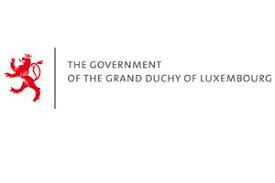As part of the 2009 budget reform, the Municipality of Osnabrück switched its accounting system from cash to accrual basis. This was intended to create the basis for an increase in efficiency through an improved complex control approach in public financial management that, in addition to defining strategic objectives, also includes an improved linkage with existing resources and the use of key figures in reporting to illustrate the achievement of objectives. A key strategic objective is to maintain the financial capacity to act.
Story prepared by: Thomas Schaefer, Municipality of Osnabrück, Head of the Financial Management and Con-trolling Department & Prof. Dr. Gabriele Buchholz, Osnabrueck University of Applied Sciences
Process
In cooperation with the Osnabrück University of Applied Sciences, the municipality of Osnabrück together with two other municipalities in Lower Saxony carried out a self-assessment of its PFM by using the PEFA methodology for the first time in Germany. The assessment was realized in consultation with all the relevant administrative departments. The aim of the assessment was to continue the PFM reform process by aligning it with international PFM standards. By taking into account the complexity and internal control logic of the PFM, cooperation relations with politicians, citizens and civil society are to be improved.
Results
The weaknesses of the PFM in terms of transparency, control, governance and impact orientation identified by the evaluation were further discussed in 2019 against the background of the Open Data Initiative. The PEFA report and the specific recommendations for action to improve the quality of the PFM and measures within the framework of the Open Data Initiative are available in form of two Bachelor theses. "This has made it possible to transfer the theoretical requirements from the PEFA methodology into the financial management practice of the Municipality of Osnabrück and to derive logical consequences in form of recommendations for action. These recommendations mainly contain important and relevant suggestions for aligning the PFM in our Municipality with international standards" (Simon Vehring, Financial Management Specialist and coordinator of the PEFA assessment in the Municipality of Osnabrück). Overall, the results of the PEFA evaluation show that there is still decisive potential for improving the PFM in order to continue the reform process in a targeted and successful manner. The indicator-based evaluation makes it clear that the further devel-opment of the content of the traditional budget economy into a proper PFM has not yet been completed.
Lessons learned
The PEFA framework for assessing the quality of the PFM requires the consideration of far more aspects than is currently practiced in Germany under the term "financial management". The comprehensive control logic of the PFM based on the seven pillar structure of the PEFA framework is the decisive component for the further development of the quality of the PFM in Germany. Lower Saxony's municipal budget law does not take sufficient account of the overall complexity of the PFM, which above all also includes the cooperative relations with politics, citizens and civil society and the transparency and accountability for the performance of services under consideration of the impact orientation. It is not only about the financial and performance results, but above all about the impacts achieved.
In addition, the inadequate orientation of German budgetary law towards the inadequate obligation of transparency and accountability towards citizens and policymakers becomes clear. "The evaluation results clearly show that, like other municipalities, we still have a long way to go in the direction of transparency. And this is a prerequisite for citizens' trust in politics and administration and for active citizen participation”, explained Thomas Schaefer, Head of the Financial Management Department in the Municipality of Osnabrück. Responsibility in dealing with public re-sources and accountability for the effects achieved are a decisive location factor for the sustainable development of any local community.





